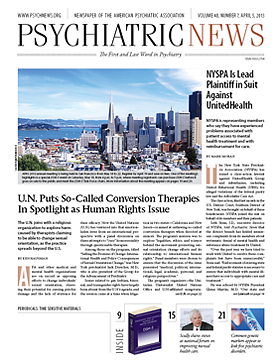Study of Mild Cognitive Impairment in Parkinson’s Disease Begins
On February 5, Teva Pharmaceutical announced the enrollment of the first patient in the MODERATO study, a phase 4 clinical study designed to evaluate the effect of Azilect (rasagiline tablets) on cognitive function in adults with Parkinson’s disease who also have mild cognitive impairment (PD-MCI).
The MODERATO study (Multicenter, Randomized, Double-Blind, Placebo-Controlled Study to Assess the Effect of Rasagiline on Cognition in Patients With Parkinson’s Disease) is the largest trial to evaluate a treatment for PD-MCI. The multicenter study will evaluate the effect of rasagiline on cognitive function in adults with PD-MCI and will enroll approximately 170 patients at 30 sites across the United States. Treatment results will be assessed using the Scales for Outcomes of Parkinson’s Disease–Cognition after 24 weeks of treatment.
Azilect is indicated for the treatment of Parkinson’s disease both as initial therapy alone and as an additive to levodopa later in the disease process. Azilect is available in more than 40 countries, including Canada, Israel, Mexico, and all the European Union countries, as well as the United States.
Interpol and Pharmaceutical Industry to Combat “Fake Drugs”
Interpol, the international police organization with members from 190 countries, has signed an agreement with 29 of the world’s largest pharmaceutical companies aimed at combating what it called the “global scourge of fake medicines, which threatens the health of millions of people.” According to a March 5 announcement, the three-year deal will see the creation of Interpol’s Pharmaceutical Crime Programme to further build on the work of its Medical Product Counterfeiting and Pharmaceutical Crime unit. The agency and the participating companies hope the new initiative will enhance the law-enforcement community’s response to pharmaceutical crime through stronger partnership development.
The program will focus on prevention of all types of pharmaceutical-related crime including branded and generic drug counterfeiting as well as identification and dismantling of organized-crime networks linked to this illegal activity, which Interpol says generates millions in illicit profits every year.
“With no country, no drug, no medical product immune from counterfeiting, a global effort is needed to combat this threat, which puts the lives of millions of people at risk every single day,” said Interpol Secretary General Ronald Noble. “This support…from the pharmaceutical industry forms a bridge between the public and private sectors and will assist Interpol and each of its 190 member countries to more effectively tackle the problem of medical product counterfeiting.”
An essential part of the program is to raise public awareness of the dangers of fake drugs, particularly for people buying medicines online. The World Health Organization estimates that in more than 50 percent of cases, medicines purchased over the Internet from illegal sites that conceal their physical address are counterfeit. The program will include training, capacity building, and targeted enforcement actions to build awareness of the issue, as well as to disrupt and dismantle the crime networks involved in the various types of pharmaceutical crimes.
Interpol is an intergovernmental organization facilitating international police cooperation and is located in Lyon, France.
